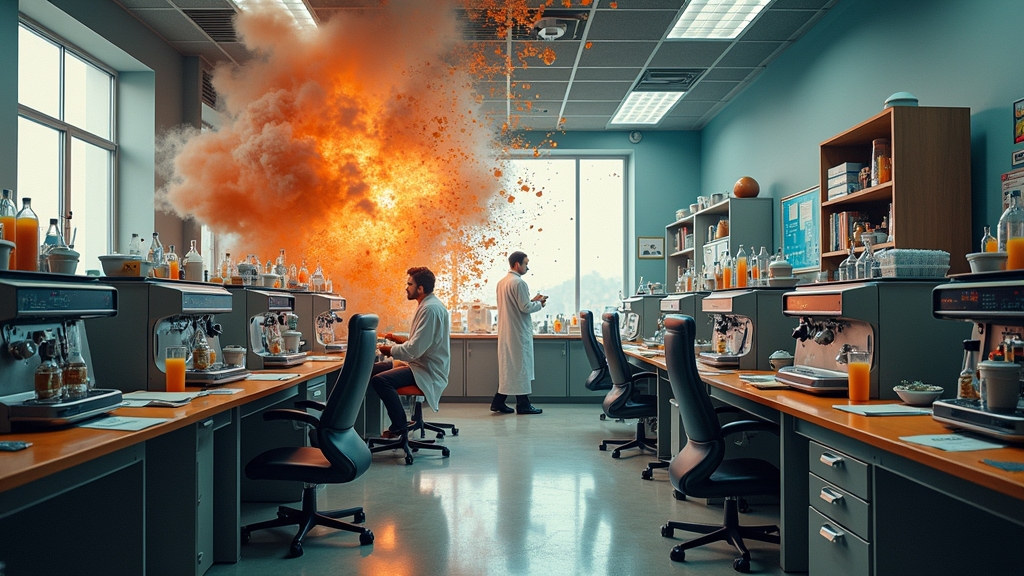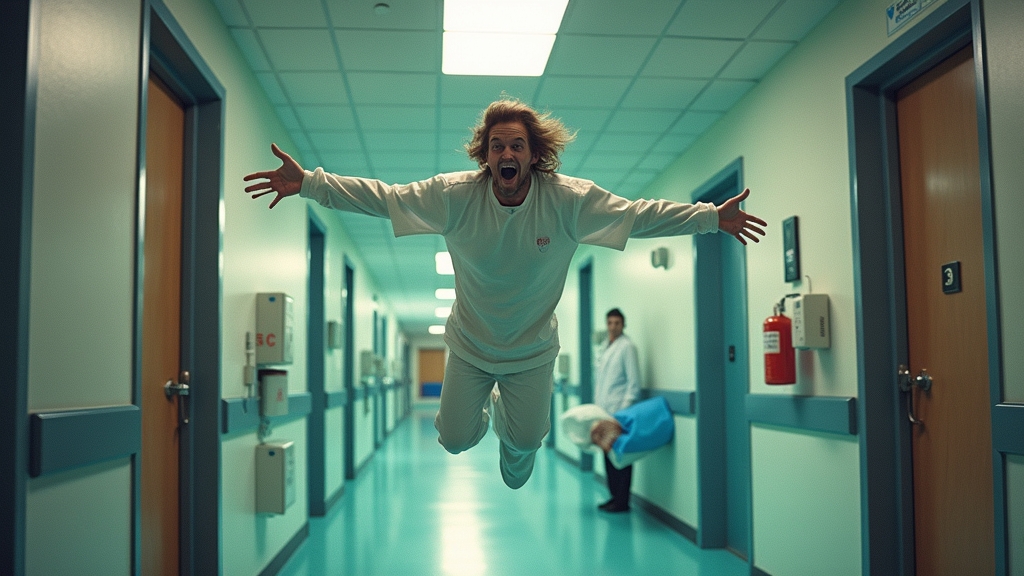“2025 Science Predictions Include AI Babysitters, Moon Traffic Jams, and Malaria-Curing Smoothies”
In yet another round of overconfident crystal ball gazing, leading science experts have boldly predicted what’s in store for 2025, leaving the world simultaneously intrigued, confused, and horrified. Spoiler alert: by the end of the year, we may wonder if it’s time to let dolphins be in charge instead.
“It’s going to be a monumental year for science,” claimed noted scientist and part-time astrology enthusiast Dr. Chad Nimble. “We’re talking about AI taking over, malaria being cured with green juice, and astronauts duct-taping themselves to the Moon because airlines overbooked spaceflights again.”
One of the biggest predictions comes in the form of artificial intelligence completely dominating every Nobel Prize category, including literature, because apparently having ChatGPT draft your wedding vows wasn’t enough. “AI will publish an all-haiku romance novel, solve climate change with a PowerPoint presentation no one understands, and probably win a Grammy for remixing whale sounds,” said an anonymous source speaking through Neuralink’s experimental brain-to-brain zoom call. Critics say this could make humanity’s own achievements redundant, but hey, at least we’ll be free to focus on achieving the perfect TikTok dance.
Meanwhile, the field of space exploration is expected to hit new (and chaotic) heights. Experts predict that the Moon will finally get its first Taco Bell when SpaceX announces plans to turn lunar craters into fast-food drive-thrus. But tensions may arise as lunar parking disputes escalate during humanity’s first, and inevitably disastrous, “Space Race 2: Electric Boogaloo.” NASA is reportedly preparing protocols for when astronauts start keying Teslas parked in their designated craters.
Astronauts are also bracing for what experts call the “orbit traffic rebound,” where Earth’s low orbit becomes so congested that satellites will reportedly need to carpool. “I got stuck in debris traffic for six hours last year,” complained an unnamed astronaut via text message while floating aimlessly. “By 2025, I’m pretty sure we’ll need space traffic cops.”
On Earth, researchers are optimistic that malaria will finally meet its match—not in vaccines, but in a kale-based super smoothie infused with a pinch of blockchain technology. “The smoothie worked wonders in our lab tests,” explains Dr. Linda ‘I Swear This is Science’ Marlow. “Side effects may include spontaneous glowing and the unavoidable urge to tweet about it, but hey, at least you won’t have malaria.” Unfortunately, this innovation will likely cost $39.99 per smoothie and only be available at upscale juice bars that refuse to take cash.
And for all you worried about pandemics, a new strain of Mpox emerging in the DRC reminds us that viruses are still the ultimate party crashers. “Just when you thought it was safe to throw away your hand sanitizer,” sighed virologist Tony ‘I Invent New Germs for Fun’ Washburn. Predictions indicate we should prepare for masks to make a high-fashion comeback, this time with LED screens and sponsored ads screaming actual live tweets at strangers.
But while scientists are peering into the future with excitement, others are more skeptical. “Every year, some egghead blurts out science fantasies to scare or impress people,” says self-proclaimed science expert Kevin “Flat Earth” Plumberton. “Mark my words: AI and outer space are just deep-state distractions from the government creating chemtrails out of expired Starbucks lattes.”
Despite the divided opinions, humanity is buckling up for 2025—an era that promises groundbreaking discoveries, moon-based burrito trucks, and, hopefully, no accidental AI uprisings. Until then, we recommend every earthling brush up on space etiquette, stock up on those smoothies, and cross fingers that your smartphone doesn’t decide to unionize against you by June.




